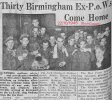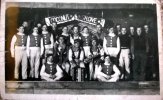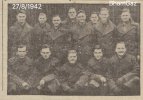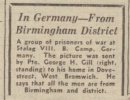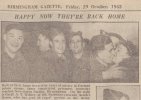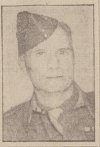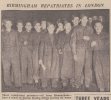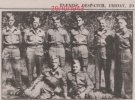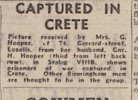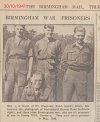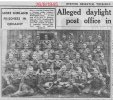-
Welcome to this forum . We are a worldwide group with a common interest in Birmingham and its history. While here, please follow a few simple rules. We ask that you respect other members, thank those who have helped you and please keep your contributions on-topic with the thread.
We do hope you enjoy your visit. BHF Admin Team
You are using an out of date browser. It may not display this or other websites correctly.
You should upgrade or use an alternative browser.
You should upgrade or use an alternative browser.
Prisoners of War WW2 photos
- Thread starter Vivienne14
- Start date
What a great thread, only just come across it. It was good to see that in most of the photos the guys looked reasonably healthy. More than can be said for those in Japanese Prisoner of war camps. One of our neighbours living at 46 Abbey Road Erdington, think his name was Upton, was in a Japanese POW camp. I remember his mom telling us she had had a letter from him and asked her to save the stamp. She thought it strange as he did not collect stamps. She steamed it off the envelope and found he had written on the back of the stamp about the atrocities taking place. I wont relate here what they were but some of them made me feel physically sick. He was certainly not the same man after returning home.
Last edited by a moderator:
gerrard st lozells viv so my rellies neck o woods...family research so far has not turned up any POWS but that does not mean there were none...thanks oh there are a few of the old houses still standing in gerrard st but no 74 was demolished many years ago
lyn
lyn
Janet Hunt
master brummie
Just gone through this posting lots of interesting stuff, nice to know a lot of these men made it home
Welcome Janet. Yes, totally agree. It must have been a relief to families to see their loved ones in photos like these. The early photos must have given little guarantee of the men making it home but it would have offered so much hope to families.
Viv.
Viv.

